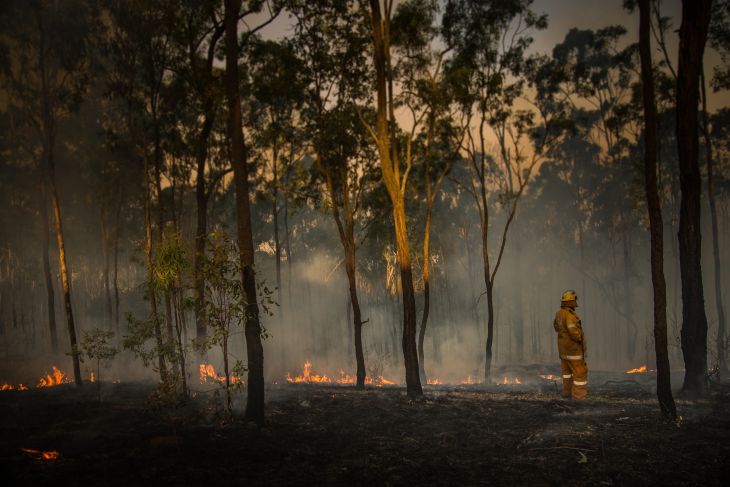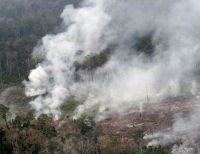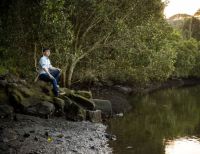
If you could flee a heatwave, of course you would. But it’s a risk to pretend climate change isn’t happening. Photo credit: Adobe Stock
We tend to think of climate denial as a delaying tactic used by fossil fuel advocates. This is not wrong, given climate denial was strategically created and fostered by politicians and coal, oil and gas companies with vested interests in stalling action and deflecting responsibility.
Researchers have historically linked climate denial to inadequate knowledge, sociopolitical biases or emotional defence. Other researchers have focused on beliefs, psychological barriers, and moral disengagement.
But focusing on how and why we think overlooks the main way we actually respond to our environments: our bodies. The role of our senses and their influence on our everyday behaviour tends to be overlooked in social and political thought. Reckoning with climate change inaction demands we return to our senses. Here, we find climate denial is more than just a political tool.
Within our communities, it’s the way in which different segments of society are able to maintain a physical sense of normalcy and comfort, while others bear the brunt of climate disasters.
A heatwave in Western Sydney in 2016-17 reflects this clear divide, as colleagues and I found in earlier research.
People who lived in households without aircon were hit hard by the heat. It affected their bodies and emotions, making them fatigued, sometimes nauseous, anxious and stressed. It was hard for them to do anything other than swelter or seek out spaces of relief where possible. In contrast, people with aircon were far less affected, or even unbothered by the heat. They knew there was a heatwave, but it didn’t directly affect them.
One resident told us of trying to sleep without aircon:
If you only get maybe three or four hours sleep – and it’s not good sleep – … it’s like, “I can cope today.” (By) the third sleep, it’s like, “Please keep away from me” … And every day after that just gets worse and worse.
Another resident told us of the relief she felt at being able to leave her overheated house, taking her kids and staying at a friend’s house with both air conditioning and a pool. “It was like a holiday,” she said.
Both groups were being entirely rational in seeking relief from the overwhelming heat in whatever ways they could. Those without aircon longed for the relief it would bring.
For those with aircon, their main concern was the cost of running it. While this is a burden, the fact this was their main worry indicates aircon worked. Their relative wealth shielded them.














